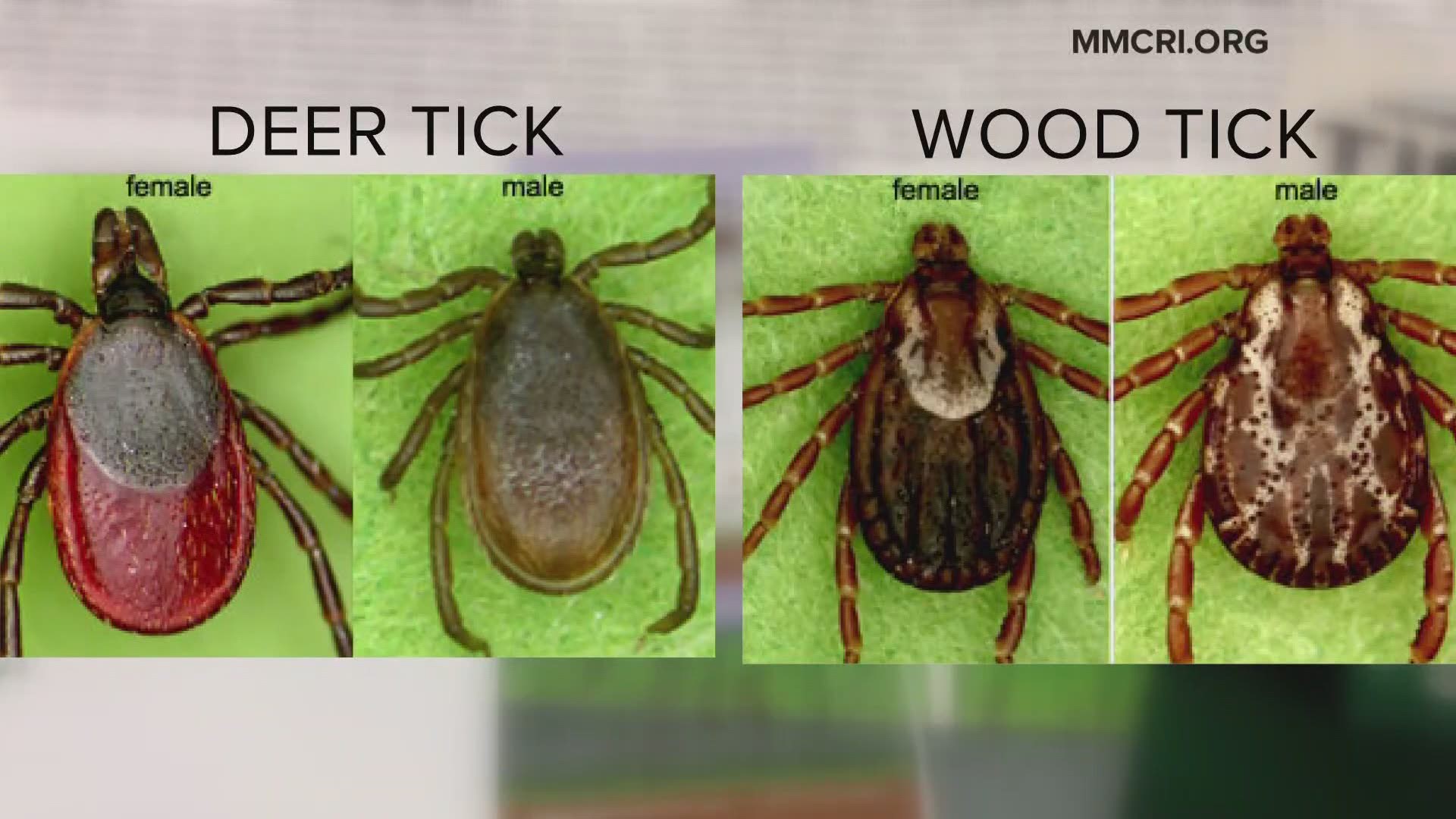AUGUSTA, Maine — The Maine Center for Disease Control and Prevention (Maine CDC) has confirmed the state’s first case of Powassan virus infection in 2021.
According to a release Tuesday from Maine CDC communications director Robert Long, a Waldo County resident who likely became infected in Maine is recovering after spending time in the hospital.
Humans become infected with Powassan through the bite of an infected deer tick or woodchuck tick, according to the Maine CDC.
Cases of Powassan are rare in the United States. According to the Maine CDC, about 25 cases have been reported in the U.S. each year since 2015. The Maine CDC said there have been nine cases identified in Maine since 2010.
The Maine CDC is now urging residents and visitors to take precautions against bites from ticks, as well as mosquitoes, which can similarly spread serious diseases.
There are four viruses spread by ticks or mosquitoes in Maine. Besides Powassan virus, which is spread by ticks, infected mosquitoes in Maine can spread Eastern Equine Encephalitis (EEE), Jamestown Canyon virus (JCV) and West Nile virus (WNV), according to the Maine CDC.
All these viruses have similar symptoms, which may include fever, headache, vomiting, weakness, confusion, seizures, and memory loss, according to the Maine CDC. Serious neurologic problems may occur, including infection of the brain or the membranes around the brain and spinal cord. Severe infection may result in death, according to the Maine CDC.
The Maine CDC said deer ticks can also carry bacteria that cause Lyme disease, anaplasmosis, babesiosis, and other illnesses.
Many people infected with the viruses carried by ticks and mosquitoes do not have symptoms, according to the Maine CDC. No specific treatment is available for these viral diseases. If you experience symptoms, the Maine CDC recommends calling a health care provider as soon as you can.
The Maine CDC said the best protection against all tickborne and mosquito-borne diseases is to prevent bites. Prevent tick and mosquito bites by:
- Wearing protective clothing, including long sleeves and pants.
- Using an EPA-approved repellent on skin, and Permethrin on clothing for added protection.
- Using caution in tick-infested areas. Avoid wooded and bushy areas with high grass and stay in the middle of trails whenever possible.
- Taking extra precautions at dusk and dawn when mosquitoes in Maine are most active.
- Performing daily tick checks, especially after leaving tick habitat and after returning home.
- Bathing or showering after coming inside. Also examine clothing, gear, and pets.
- Draining artificial sources of standing water around the home. This is ideal habitat for mosquitoes to lay eggs.
- Asking a veterinarian about tick bite prevention for cats and dogs, and vaccinating horses against EEE and WNV.
- Visit Maine CDC’s vectorborne disease website for more information on ticks and mosquitoes.
- Check out www.maine.gov/dhhs/powassan for more information about Powassan virus.
- Find information on tick identification and testing at ticks.umaine.edu.
- View information on repellents at www.maine.gov/dacf/php/gotpests/bugs/mosquito.htm.
- Watch Maine CDC’s videos on tick and mosquito-borne diseases at www.youtube.com/user/MainePublicHealth

